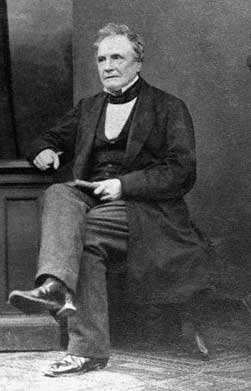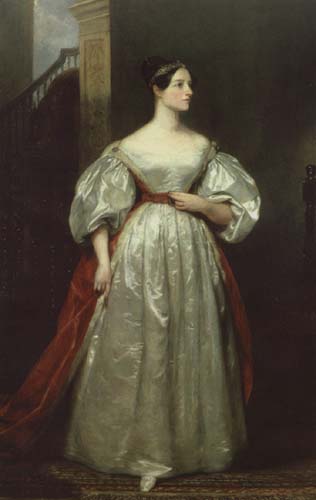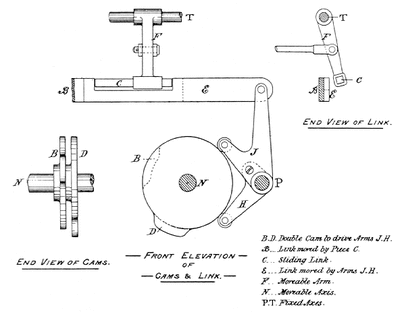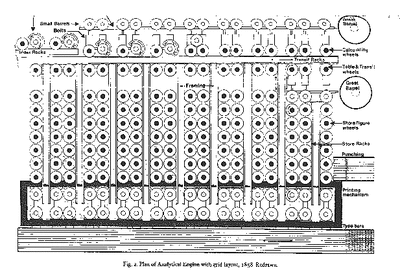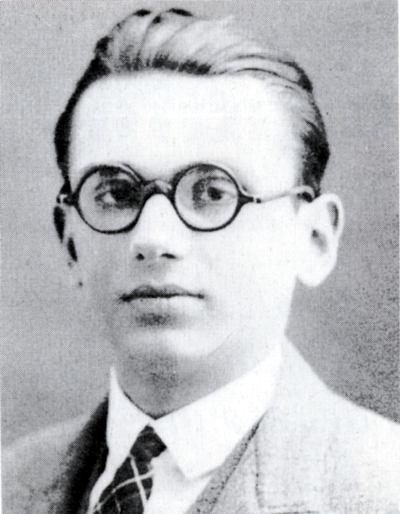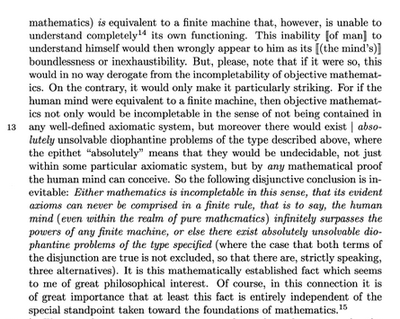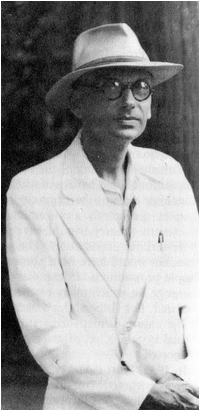Digital Foundations, 1837-1931
|
Charles Babbage, n.d., History of Computers
|
Perhaps the earliest development in machine intelligence happened in 1837, when mathematicians Charles Babbage and Ada Lovelace hypothesized the Analytical Engine. If constructed, it would have been the first partially programmable computer.
“We may say most aptly, that the Analytical Engine weaves algebraical patterns just as the Jacquard-loom weaves flowers and leaves [...] Its nature is, however, limited to the strictly arithmetical, and it is far from being the first or only scheme for constructing arithmetical calculating machines with more or less of success.” [1]
(Click image to enlarge and view caption)
|
|
In 1931, scientist Kurt Gödel concluded certain problems could not be completed mechanically. At the time, little was known of computers, but Gödel's work would inspire another scientist to pursue the subject: Alan Turing.
“The progenitor of information theory [...] was Kurt Gödel, the eccentric Austriac genius and intimate of Einstein who drove determinism from its strongest and most indispensable redoubt; the coherence, consistency, and self-sufficiency of mathematics.” [2]
|
Kurt Gödel, n.d., Thinking Machines
|
